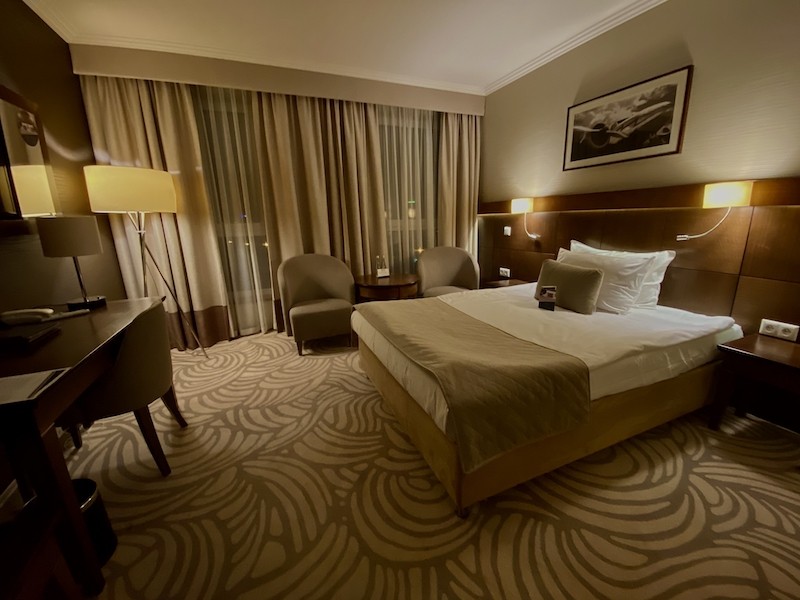Tourism is an honorable profession to get into, whether you’re a five-star hotel or a single home bed-and-breakfast. For many countries, states, cities, and towns, the hospitality industry is crucial for bringing new businesses and customers into the area, invigorating the economy, and providing for the locals. In this sense, hospitality serves as the lifeblood for many local and struggling economies. This might make you think you don’t need to worry about putting lots, or even any, effort into marketing, but this couldn’t be further from the truth. Many businesses have failed due to this false belief. In this article, we’ll be discussing a very important, yet often under-utilized method of increasing your online visibility: search engine optimization, or SEO. We’ll cover the basics, how you can do it, and what to do beyond SEO to ensure the continuation of your tourism or hospitality business.
Table of Contents
What Is SEO?
To start the discussion, let’s answer the burning question: what is SEO? SEO sounds more complicated than it really is. It doesn’t require a computer science degree or years of specialized experience. SEO simply describes any and all methods used to make your website more visible to search engines like Google. This means not only showing up on the search results page but appearing as high on the page as possible. Plenty of people focus their attention solely on what’s on top of the page, so you don’t want to lose customers just because you’re a little harder to find.
SEO starts and ends with understanding a website’s metadata: its text, formatting, and structure. Google’s search algorithm works by determining how relevant a website is to certain search terms. The goal is to make the topics your business is involved in—hospitality—abundantly clear on your website. Doing so will not only let Google know who to show your website to but also where you rank among other potential search results.
You might think that SEO for tourism and hospitality requires paying Google to place you higher, but this is not true. While you certainly can do this through Google Ads, SEO is concerned with reaching the top of the search results organically. A lot of people skip right over the search ads on Google anyway, making SEO superior in making your business look legitimate. People trust people after all, so when they see that you paid to reach that top spot, it means they can no longer use your search result ranking to determine your worth.
Making a Website
It should be abundantly clear that, in order to perform SEO properly, you need a website! Small businesses by and large either have one already, are getting one, or want one. SEO doesn’t create your online presence for you, it only amplifies it. Making a website, thanks to software such as Wix, Squarespace, or Adobe Dreamweaver, is easier than ever, and you can always hire people to make one for you.

What Is Local SEO?
Something you may have started to wonder is, given how many large hotel chains there are, how could I get to the top of the search results when competing with large corporations? For many small businesses, reaching the top spot for their associated search terms is impossible. Fortunately, you don’t have to reach this spot to be hugely successful with SEO. Realistically, it’s not like you’re providing a service to the whole world; you only need to appeal to those interested in your operating region. When someone searches “hotels in Indianapolis,” you want your business to be the first organic result (if that’s where you operate, for example).
Such is the basic idea of local SEO for tourism and hospitality. When you tailor your SEO to focus on a specific area, the goal of reaching that top spot becomes much easier. Additionally, there are some strategies you can use for local SEO that you couldn’t with normal SEO. This comes with similar levels of performance as well, considering around half of Google searches are concerned with local information. Now that the concept is hopefully more clear, we can begin to delve into some strategies.
Local SEO Strategies for Tourism and Hospitality Businesses
As mentioned earlier, SEO for tourism and hospitality is all about how you construct your website. You want to make clear what kind of business you are, where you operate, and what people think of you to the search engine. There are several parts of the website that Google looks at when determining its organic search ranking. The main concerns are detailed below:
Keywords
Keywords are something we’ve already touched on, and you’re undoubtedly quite familiar with them yourself. Keywords are words and phrases that people use in search engines to research particular topics. If someone wanted to find a car salesman, terms such as “car dealership,” “car salesman,” and “cars for sale” might be terms that are entered into the search bar. The earlier example, “hotels in Indianapolis,” is an example of a keyword for hotels in that location. To use keywords properly, you first need to know which ones apply to you. For tourism and hospitality businesses generally, people might look up:
- Hotels near me
- Places to stay near me
- Cheap one night stays
- Nearby resorts
- Quality lodging near me
- Cheap hotels
You get the idea. Depending on what kind of hospitality business you run, these keywords are likely to change. The idea is to use the relevant keywords plenty of times throughout the text on your website. This helps Google direct the right people to your website, as well as make you appear more attractive to customers. For local SEO, you can even take advantage of region-specific keywords people might use to find you. If you’re having trouble coming up with keywords, the Google Ads Keyword Planner can help. It can generate plenty of useful keywords in an instant, and can even be tailored to find local search terms.

Headings
Strongly connected to keywords are headings or the large pieces of text that subdivide the contents of the page. The big “Headings” above this paragraph is an example. Google’s search algorithm gives heading text extra weight for determining relevance, so be sure to use keywords in your headings whenever possible.
Links
The presence or way you use links on your website might seem irrelevant, but Google uses these as a metric to determine credibility. The more links you use, the more a website seems grounded in research and facts, and thus trustworthy. Visitors of your website will also be glad to see links, as it makes you seem more legitimate.
There are two types of links you need to know about: internal links and external links. External links bring users to another website outside your domain and are mainly used for improving credibility in the eyes of Google and its users. Internal links direct users to other web pages on your website, which lets users immerse themselves in your content. They also turn the traffic of one webpage into traffic across your website, which helps boost your search results ranking.
Traffic
Speaking of traffic, it’s no surprise that Google uses the number of people visiting your website to determine your rank among other search results. Websites with high traffic numbers are more likely to be legitimate and are moved up the page accordingly. To boost your traffic, try to incorporate your website into all of the advertising that you do. Make sure people know how to look you up no matter how they hear about you. This way, people not only have an easier time finding your website intentionally but also are more likely to see it among a pool of options. The more traffic you get, the more people will see you, thus leading to more traffic, and so on.

Google My Business
As a final tip, make a Google My Business account! Google My Business lets you place your business on Google Maps and correlate that location with contact information. The verification process also lets Google know you’re a serious and legitimate business. This is great for local SEO! It also helps in other ways, such as providing a place for customers to leave reviews. Lots of travelers will write you off if they can’t find reviews about you, so doing this is almost a must for this industry!
SEO Design Chicago Can Help Tourism and Hospitality Businesses
SEO Design Chicago is a firm that specializes in helping businesses improve their digital marketing strategies. We can help with everything from website construction to social media content creation (and especially SEO!). We even have specialized services for tourism and hospitality businesses, so be sure to consider us for any digital marketing needs.
FAQ:
- What is SEO?
- What is local SEO?
- How should I use links?
- Why are Google My Business accounts important?
- Why do I need a website for SEO?



Contact Us Today!